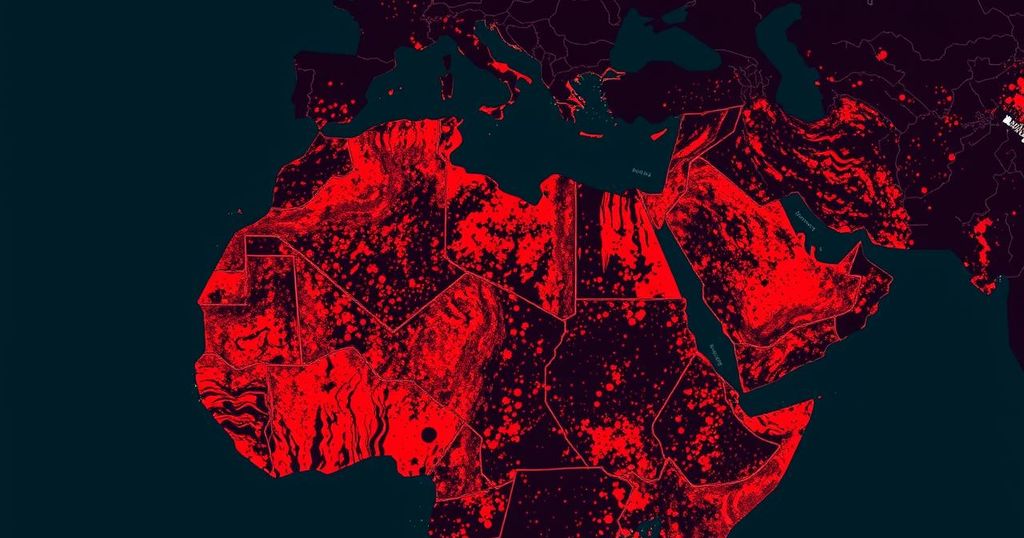The Sahel region in Africa is witnessing a surge in extremist attacks, particularly from al-Qaida-affiliated groups, exacerbated by military coups. Civilian casualties have dramatically increased, underscoring failures in governance and security. While local militia dynamics contribute to the violence, a lack of job opportunities and regional instability further empower these extremist factions.
Recent months have seen a significant rise in extremist attacks in the Sahel region of Africa. For the first time in nearly ten years, Islamic militants struck Bamako, the capital of Mali. Last month, violent assaults in central Burkina Faso led to the deaths of over 100 individuals during an attack by al-Qaida-linked militants. An increase in violence has been observed in a region already plagued by a history of military coups and instability, impacting the lives of countless civilians.
The Sahel region has experienced severe political upheaval characterized by military coups and extremist uprisings. Countries such as Mali, Niger, and Burkina Faso are now subjected to military rule, which promised enhanced security but has resulted in escalated violence. More civilians have lost their lives due to attacks from both extremist groups and government forces, showcasing a troubling trend in the security landscape.
The prevailing security issues in the Sahel region reflect a complex interplay of extremist violence, military governance, and socio-economic challenges. The deterioration of the situation has led to a significant increase in civilian casualties, with extremist groups gaining influence due to the vacuums left by withdrawing foreign forces. A comprehensive approach addressing these issues is vital to mitigate further destabilization in the region.
Original Source: www.voanews.com






